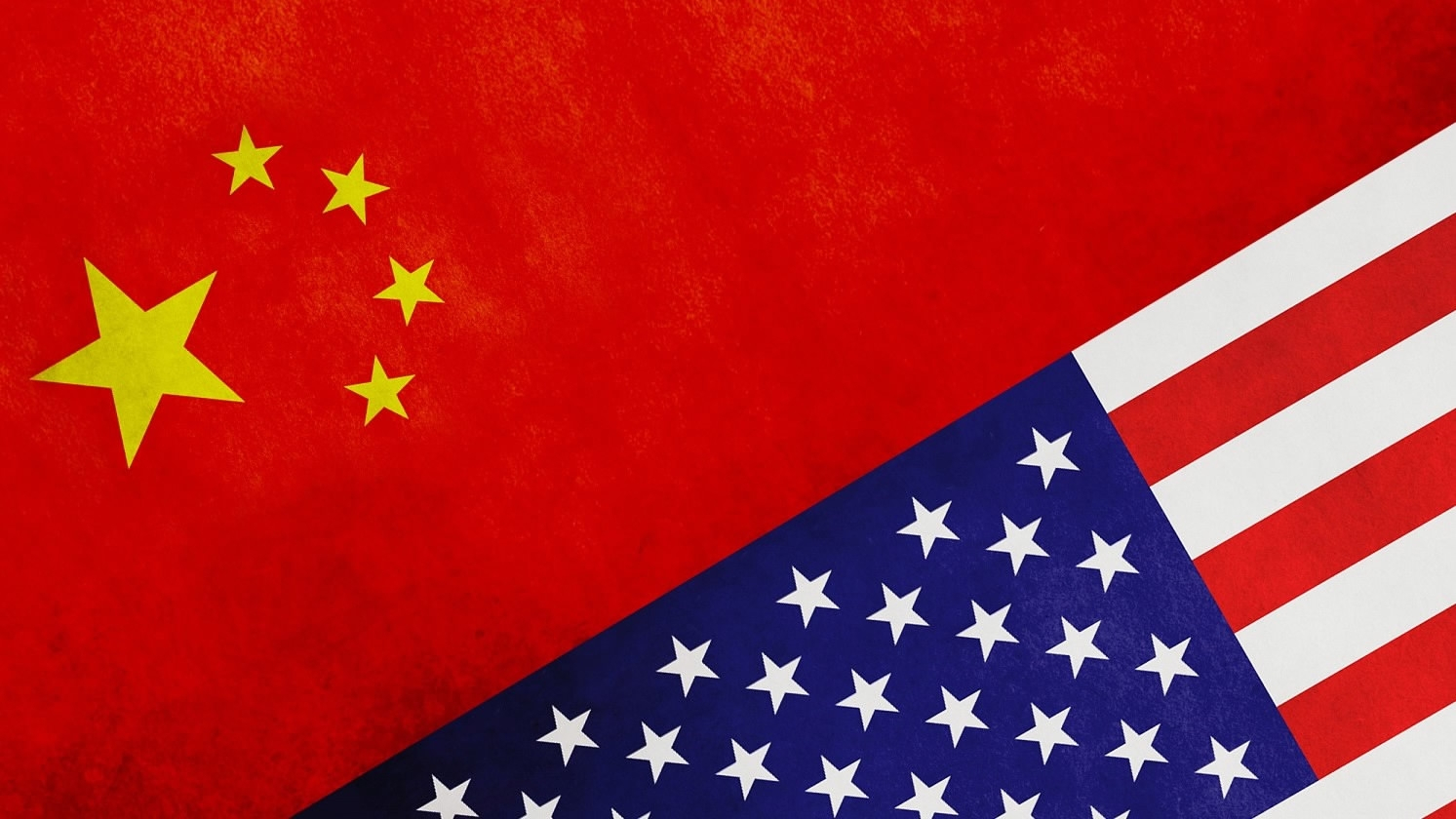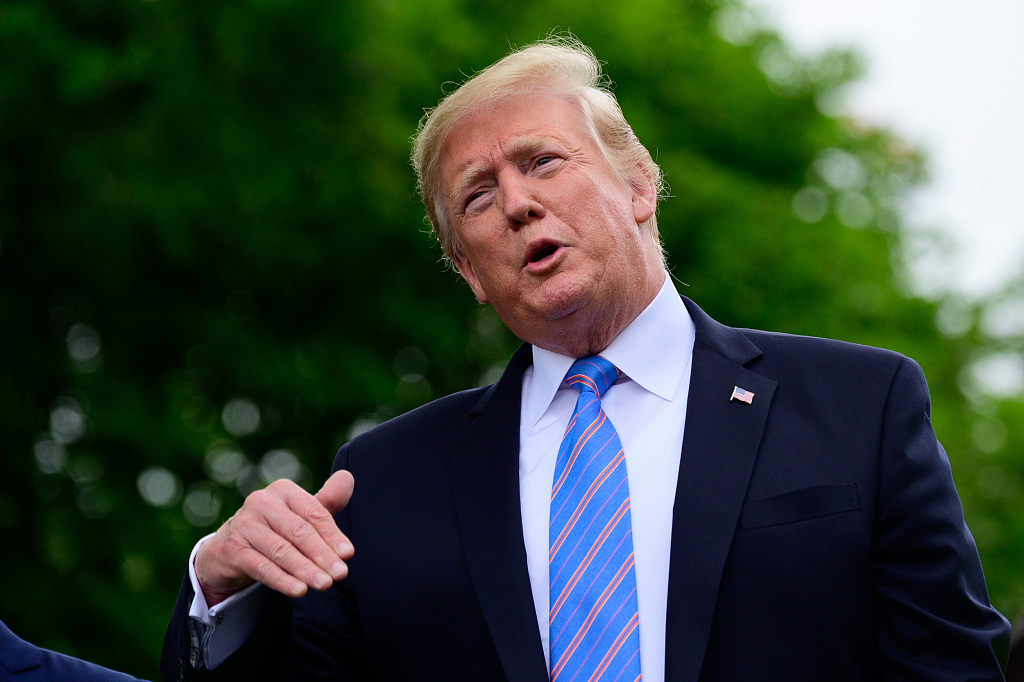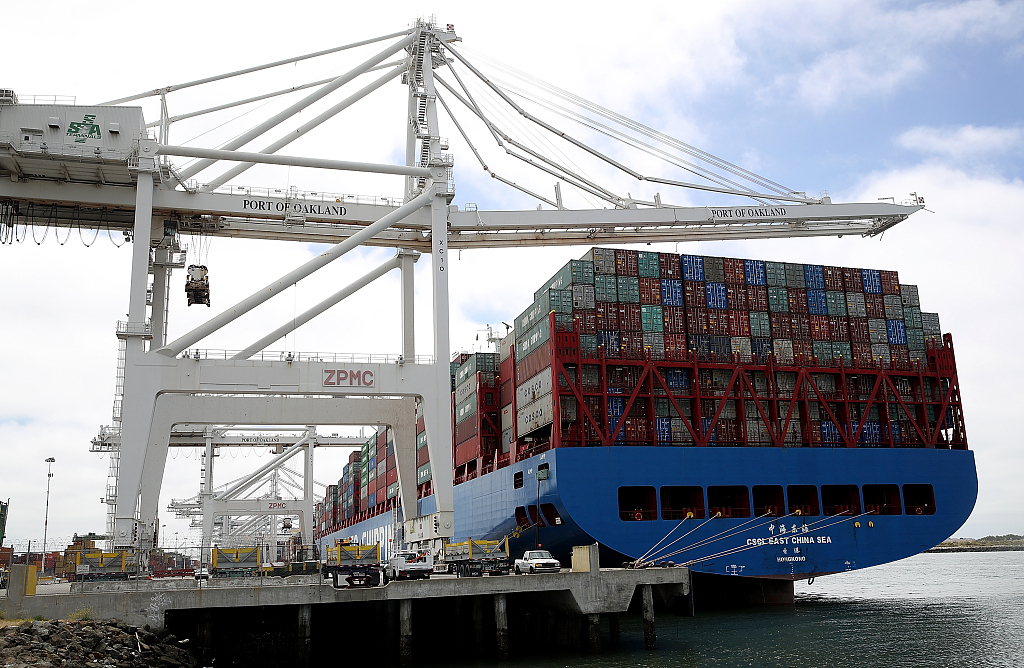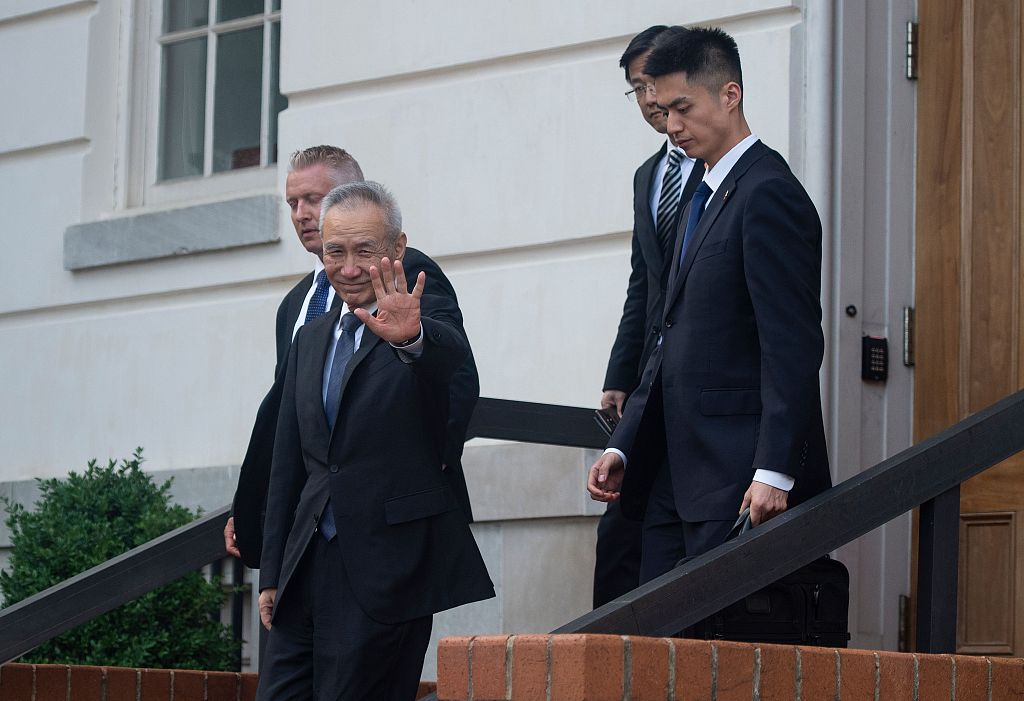
Opinion
22:51, 11-Jun-2019
Can U.S., China negotiate the trade conflict?
Richard Fairchild

Editor's note: Richard Fairchild is an associate professor at the Finance of School of Management at the University of Bath. The article reflects the author's opinions, and not necessarily those of CGTN.
As the U.S.-China trade war intensifies, we consider how this grim situation has developed, and whether it can be de-escalated and reversed.
According to academic Jake McGwire, President Donald Trump was elected on the promise to the U.S. public to "Make America Great again.", and he had assessed that U.S. industry was under extreme threat from global competition, not only from China but from EU, Japan and other nations.
Trump framed this to his public as America versus the rest of the World. One of the main building blocks of his promise was to introduce a system of extensive tariffs on imports: he framed this as the "America First" campaign.
McGwire has expressed that President Trump saw China as the biggest competitive threat to U.S. industry and economy. It has been stated that President Trump is a fan of game theory, and uses it in his strategic thinking. If this is the case, he had not thought his 'America First' campaign through fully.
McGwire notes that a protectionist campaign of tariffs works well only if other nations do not react. However, in game theory terms, it is a Prisoner's Dilemma. Consider the game played between two players: U.S. and China.
Let's say that, under free-trade, the two players achieve payoffs of 1000 units (of GDP) each. Now, Trump is elected as President and imposes tariffs on U.S. imports from China. If China does not react, this distorts trade between the two nations, so that the payoffs now become: U.S. GDP of 1500; China GDP 500 units. This appears to be a winner, and very appealing for the U.S. electorate.

U.S. President Donald Trump speaks at the White House during an event in Washington DC, the U.S., June 10, 2019. /VCG Photo
U.S. President Donald Trump speaks at the White House during an event in Washington DC, the U.S., June 10, 2019. /VCG Photo
However, game theory recognizes interactions between economic players, with actions followed by reactions. The U.S. appears not to have anticipated the response to their tariffs: China reacted by increasing tariffs on U.S. imports.
Now, does this just level the playing field again so that we return to the free-trade situation of 1000 units each of GDP for the two players? No. With both nations imposing tariffs, each nation is worse off.
As the distortions take effect, both the U.S. and China find their industries suffering from higher import costs on the materials in their supply chains, higher prices are passed onto U.S. and Chinese consumers, and both economies suffer. Let's say that both economies end up with payoffs of 500 units of GDP each from the escalating trade war.
This is exactly the Prisoner's Dilemma at play. Under cooperative free trade, both nations prosper and are happy. Under escalating tariffs (the Grim equilibrium in the Prisoner's Dilemma), both nations end up worse off.
The escalating trade wars not only hurt China and the U.S. but have very damaging global effects. Thea Sokolowski writes in her article published on a business website that business leaders everywhere are assessing the impacts of the China-U.S. trade conflict, "preparing to shift strategy at any moment."
She notes that industries ranging from U.S. soybean farmers, China-U.S. automotive industries, Japanese machine tools, and U.S. retailers will be affected. She also states that "The extent of tariff impacts can be felt across the globe."

The Hong Kong-based CSCL East China Sea container ship sits in a berth at the Port of Oakland in Oakland, California, June 20, 2018. /VCG Photo
The Hong Kong-based CSCL East China Sea container ship sits in a berth at the Port of Oakland in Oakland, California, June 20, 2018. /VCG Photo
Similarly, after the latest G20 meeting of finance ministers in Fukuoka, Japan, Christine Lagarde, head of the International Monetary Fund (IMF), has called for a de-escalation of the trade conflict, warning that it is "the biggest risk to global economic growth."
Recently, the trade dispute has taken another twist. The escalating tariffs have been accompanied by other escalating non-price sanctions, designed to hit each other, and hold each other to ransom.
For example, Trump has called upon a ban, and an embargo, on U.S. companies working with China's biggest tech company, Huawei, in their supply chains, amidst claims of industrial spying. China retaliated by banning imports of U.S. pork.
It thus appears that the introduction of tariffs has set in motion a series of escalating and unstoppable forces that are damaging both economies and the global economy as well. Can the heat be taken out of the situation? Can it be reversed, and de-escalated?
Behavioral economics introduces psychology and emotions into the standard rational economic framework. Escalating situations can occur as people include past situations and emotions as a benchmark into their current thinking (behavioral economists call this the 'sunk cost effect': sunk costs are costs that are history, and should be ignored in the current decision-making round).

Chinese Vice Premier Liu He waves as he leaves the Office of the United States Trade Representative after tariff negotiations in Washington DC, May 9, 2019. /VCG Photo
Chinese Vice Premier Liu He waves as he leaves the Office of the United States Trade Representative after tariff negotiations in Washington DC, May 9, 2019. /VCG Photo
Thus, negotiators, for example, cannot forget what has happened in previous meetings, what has been said to and about each other, what actions have been taken by each player (such as the escalating tariffs on both sides, the tit-for-tat sanctions). Coupled with negative emotions (anger, rage, feelings of vengeance), this leads to a dangerously escalating situation.
Behavioral economists and psychologists suggest that the situation can be reversed, leading to de-escalation, using the following measures.
First, eliminate the sunk cost bias by drawing a line on the past and adopting a fresh perspective. Second, move to a positive emotional state of mind, turning anger and retaliation to empathy, forgiveness and compromise.
This can transform the equilibrium of the Game from the grim Prisoner's Dilemma of mutual destruction (high and escalating mutual tariffs) to bilateral cooperation: reversal and elimination of protectionist tariffs, and a return to mutually beneficial free-trade.
As Chinese President Xi Jinping and his U.S. counterpart Trump is projected to meet again towards the end of June at the G20 Summit to discuss the trade conflict, if they could make the mutually beneficial agreement to de-escalate the trade conflict, the whole world would rejoice.
(If you want to contribute and have specific expertise, please contact us at opinions@cgtn.com.)

SITEMAP
Copyright © 2018 CGTN. Beijing ICP prepared NO.16065310-3
Copyright © 2018 CGTN. Beijing ICP prepared NO.16065310-3